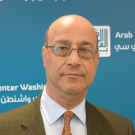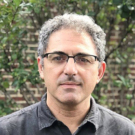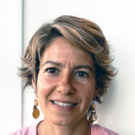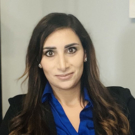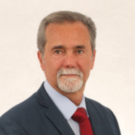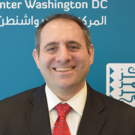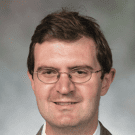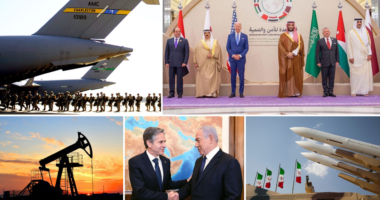
Speakers
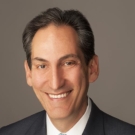
Jon B. Alterman
Zbigniew Brzezinski Chair in Global Security and Geostrategy
Center for Strategic and International Studies
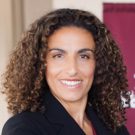
Sahar Aziz
Professor of Law and Chancellor's Social Justice Scholar
Rutgers University

Mark Finley
Fellow in Energy and Global Oil
Baker Institute, Rice University
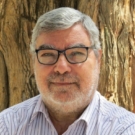
Rami G. Khouri
Co-Director of Global Engagement; Adjunct Professor of journalism; and Senior Public Policy Fellow
American University of Beirut
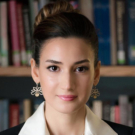
Mahsa Rouhi
Research Fellow, Center for Strategic Research, Institute for National Strategic Studies
National Defense University
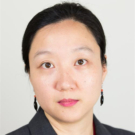
Yun Sun
Senior Fellow and Co-Director, East Asia Program; Director, China Program
Stimson Center

Sarah Leah Whitson
Executive Director
Democracy for the Arab World Now (DAWN)
About the Conference
Over the last decade, there have been ongoing debates and conversations about US disengagement from the Middle East. This discourse and the perception of a US retreat and its declining presence in the region emerged during the Obama administration, and continues today despite increased US military activities and bilateral security programs. At the same time, Russia and China have stepped up their roles and investments in the Arab world and have sought greater influence in the region through diplomatic relations, political engagements, and economic and military partnerships.
Arab Center Washington DC is organizing a half-day conference to discuss the notion of US disengagement and a pivot away from the Middle East, the realities and dimensions of this perceived retreat, the possibility that this situation reflects a repositioning of US policies and priorities in the region, and the question of whether a new multipolar international political order is emerging in light of these shifts. The conference sessions will also explore the United States’ military and economic involvements, evaluate the current state of US commitments to human rights and democracy, analyze US policy priorities in Egypt, Syria, Iran, Israel, and the Gulf states, probe patterns of direct military involvement and haphazard disengagement in places like Iraq, Afghanistan, and Libya, examine how actors in the Middle East and North Africa view the United States’ posture, and assess long-term implications for US policy in the region.
Agenda and Speakers
Opening Keynote Address
Jon B. Alterman
Senior Vice President; Zbigniew Brzezinski Chair in Global Security and Geostrategy; Director of the Middle East Program, Center for Strategic and International Studies
Khalil E. Jahshan – Moderator
Executive Director, Arab Center Washington DC
Panel 1: The Emergence, Feasibility, and Impact of a US Pivot
This session will discuss the US legacy in the Middle East, as well as the political rationale and emergence of a pivot away from the Middle East and toward East Asia. Panelists will discuss the different dimensions of US engagements in the MENA region and potential impacts of a pivot on the United States’ military, economic, and political relations and interests, especially in the context of great power competition with China and Russia and the evolving foreign policies of countries in Asia and the Middle East.
Mark Finley
Fellow in Energy and Global Oil, Baker Institute, Rice University
Waleed Hazbun
Richard L. Chambers Professor in Middle Eastern Studies, Department of Political Science, The University of Alabama
Patricia Karam
Non-resident Fellow, Arab Center Washington DC
Rami G. Khouri
Co-Director of Global Engagement; Adjunct Professor of journalism; and Senior Public Policy Fellow, American University of Beirut; Nonresident Senior Fellow, Belfer Center for Science and International Affairs, Harvard University Kennedy School
Yun Sun
Senior Fellow and Co-Director, East Asia Program; Director, China Program, Stimson Center
Sarah Leah Whitson
Executive Director, Democracy for the Arab World Now (DAWN)
Tamara Kharroub – Moderator
Deputy Executive Director and Senior Fellow, Arab Center Washington DC
Panel 2: Current US Engagements and Evolving US Priorities in the Region
This session will cover current and future US priorities in the region and America’s bilateral relations with key players and policies in Gulf Arab states, Israel, Egypt, Syria, and Iran. Panelists will also discuss China and Russia’s roles in the region’s conflicts, the United States’ direct military involvement and its haphazard disengagement in Afghanistan, Iraq, and Libya, as well as the US retreat on commitments to human rights and democracy.
Sahar Aziz
Professor of Law and Chancellor’s Social Justice Scholar, Rutgers University
Nabeel Khoury
Non-resident Senior Fellow, Arab Center Washington DC
Yousef Munayyer
Head of Palestine/Israel Program and Senior Fellow, Arab Center Washington DC
Mahsa Rouhi
Research Fellow, Center for Strategic Research, Institute for National Strategic Studies, National Defense University
Kristian Coates Ulrichsen
Non-resident Senior Fellow, Arab Center Washington DC; Fellow for the Middle East, Baker Institute, Rice University
Imad K. Harb – Moderator
Director of Research and Analysis, Arab Center Washington DC

